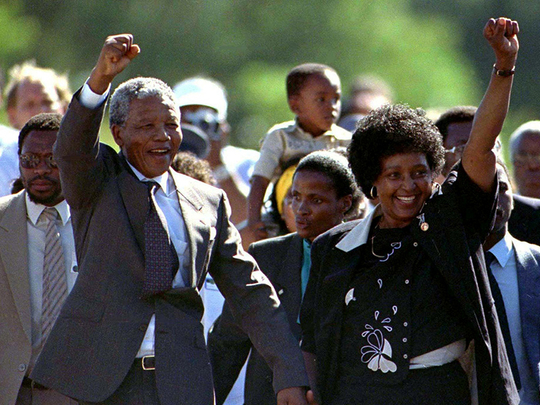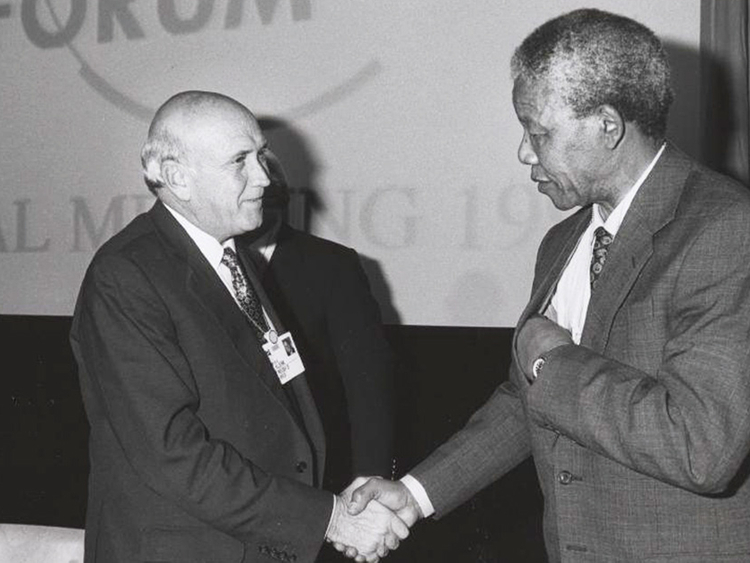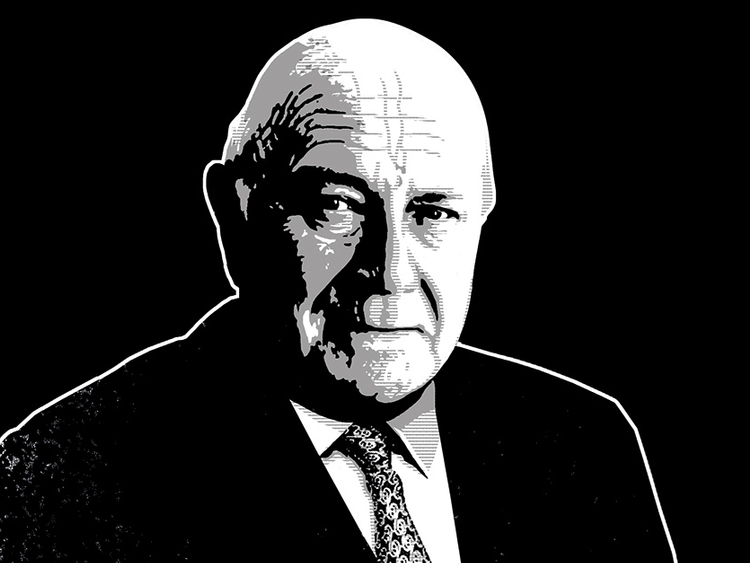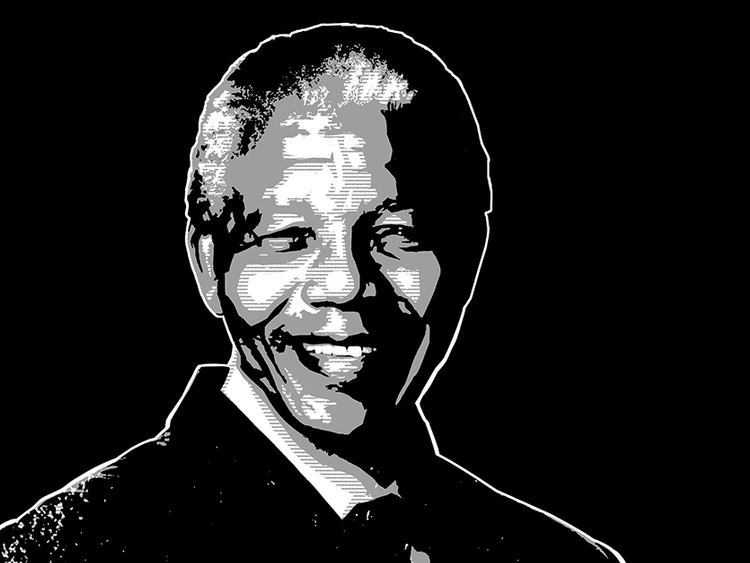
The process of abolishing a government-sanctioned and legislated system that separated people according to their skin colour — apartheid — only officially began after an (ironically) whites-only referendum, held in March 1992, resulted in a 68 per cent majority vote supporting the reform process led by President F. W. de Klerk.
Gulf News spoke to the people of South Africa 25 years later to see how apartheid has left its mark.
How coloured* and black lives have changed since apartheid:
*Note: Although originating during apartheid, the term “coloured” is treated as a neutral description, classifying people of mixed race ancestry, in Southern Africa.
Rustum Howa, a Muslim Cape Malay, was taught by his parents that the colour of your skin does not define who you are. Nevertheless, the system of apartheid would have had him believe the opposite. After being interviewed and offered a job, the opportunity was taken away two days later when his employers realised he was coloured. “Despite aptitude tests proving me capable, the company that eventually employed me had to defy government legislation to allow me to work there as a programmer — my job was reserved for whites.”
Mickey Winifred Linda runs a soup kitchen and sewing project in Khayelitsha, the largest and fastest-growing township in South Africa.
She grew up in Transkei, which was a self-governing, “Bantustan” homeland where Africans were given exclusive and often mandatory citizenship, regardless of place of birth and current residence.
Although the Bantu state suffered little interference from police, she remembers going to visit her mum, who worked as a maid in Cape Town, and hiding from the police.
“As she was from the Eastern Cape, she was unable to get a passbook [colloquially called dompas], required under apartheid law for all blacks over the age of 16. If found, she would go to prison for working illegally.”
It didn’t help that her employer’s neighbour would frequently call the police. “We learnt to be very quiet and to hide well, but I remember always being frightened. You would see the police take people and often they wouldn’t come back.”
Willy Dawson is a musician who grew up in Cape Town and was 25 at the time of the referendum to end apartheid. He remembers the Group Areas Act clearly — being relocated from his home because it was designated as a white area. As a coloured man, he could only go to a coloured school and live in a coloured area.
Today, he is the owner of a business that sells specialised automotive garage equipment — and has two white employees working for him.
“Though they’re no different to any other employee, during apartheid this was unheard of,” Dawson said. “I was considered one of the lucky ones — I was promoted to manager. White customers would ask to speak to the boss and I’d say he’s not here, but I’m the manager, how can I help you?”
Of course, as a South African of colour, he’s no stranger to discrimination. “My wife, Joan, is very fair and often mistaken for white.”
After a motorbike accident, they went to Groote Schuur hospital and he was told to go to the coloured outpatients area while his wife was treated as a white.
“I remember hoping that she’d get better treatment, but I also felt discriminated against because of my colour.”
The humiliations continued — Dawson was told to leave a whites-only beach when walking with his wife and her sister, and was again separated from his wife after a police raid at a club where people of all races used to mix.
“I ended up in jail under the Immorality Act, which prohibits relations between whites and people of colour!”
“Despite all this, I never thought of myself as coloured, black or white, I saw myself as a person who would challenge anything. As an artist I mixed with anybody but apartheid taught me to be less outspoken. I was accepted by my white friends, but the older generation didn’t want you on their premises unless you were a postman or a milkman.”
Although apartheid is no longer part of South African law, many people feel that there is much to be improved. “I have more freedom,” Howa agreed.
“But I have to go to great lengths to ensure my personal safety. In the ‘new’ South Africa, I’d like to see less crime, a stronger stance against corruption, better education and more skills development.”
“We have no dompas and can go and work anywhere but now we have government corruption and xenophobia,” Winifred Linda said, “a hate crime against people of other countries, much like racism during apartheid, that needs to be addressed. It’s encouraging to see women owning businesses and working together but I’d like to see more soup kitchens and more home and community gardens in South Africa, and more entrepreneurs.”
“Opportunities exist for everyone,” Dawson agreed. “You should never forget history — but how you move forward within the new South Africa depends on you.”
How Indian lives have changed since apartheid:
Selwyn Moodley was a 34-year-old bookmaker with a passion for horse racing when apartheid was voted out in March 1992. The biggest effect of apartheid on most Indians of his generation was the Group Areas Act, which segregated people of colour into different residential areas. Not only did Indian people have to live separately, they had to attend Indian-only schools and universities.
“Sport was very important in our community, especially soccer [football] and cricket. If you excelled in this you could get selected for provincial colours, but our professional growth was stunted — we could only ever compete among ourselves,” said Moodley.
Racism affected everyone, no matter how insulated your neighbourhood. “I’ve seen police in Durban chasing black people, even ladies with children and old women, who weren’t carrying their passbooks.
They were put in huge van and taken to [the] police station,” said Robert de Voux, a welder who grew up in Durban and moved to Cape Town, where he was adopted by a coloured family. He changed his name from Pillay to de Voux because he felt it would result in more opportunities.
Kim Naidoo, an attorney and conveyancer who was 19 at the time of the referendum, recalls going shopping with her mum as a child of three years and being exhausted. Her mum would let her sit on a bench but would never sit herself. “I couldn’t understand why she’d stand with all the parcels around her while there was place to sit.
Only when I could read did I realise the benches had signs saying ‘No blacks’. An educational bookseller, Raagandevi Redhi remembers the humiliation of not being allowed to use a large department store’s ‘whites-only’ toilet, even at her advanced stage of pregnancy.
The Indian community didn’t sit back and take the abuse. “Our parents realised that the only way to get jobs is to have top qualifications, no matter what your situation is,” said Moodley.
“Most Indian children went to law and medical schools, which, though they didn’t have the same facilities as their white-only counterparts, had fantastic Indian teachers. Rather than feel inferior, I think we were able to turn it around and feel pride in who we are. We aren’t Indians, we are South Africans and we fought for this country.”
“The end of apartheid has given us more freedom and equal rights — you don’t need to live in a segregated area and your children can go to any school,” said de Voux. Today, Naidoo lives in a predominantly white suburb and interacts with all race groups.
“We were the first people of colour to move into our complex in 2007 and my sons attend a Jewish school. I go to any gym and can join any club — life has definitely changed for the better,” she said. “We certainly have more opportunities than previously, especially the younger generation,” Redhi agreed.
Unfortunately, this isn’t the whole picture. “We all wished for a better life and equal opportunities after apartheid. But now we have government mismanagement and crime.”
Though affirmative action aims to address past racial discrimination by ensuring people from historically disadvantaged groups have equal opportunities in the workplace, Moodley believes this limits opportunities for young Indians — during apartheid we weren’t white enough and now we’re not black enough,” said Moodley.
“If I had to compare between the old government and the new, despite its transgressions the old one was more organised — you needed a certain level of education to get into Parliament,” said de Voux.
Naidoo hopes to see a *Rainbow Nation where people of all races are more tolerant and accepting of each other.
“I’d love to see citizens of our country progressing because of their individual skills and talents rather than blaming everything on our past history. Corruption at the highest level needs to cease. Politicians need to know that they are accountable to the people.”
De Voux cautions against the constant apartheid discourse. “History is remembering things, not reliving them. I think the current government needs to admit they went wrong, go back to the drawing board and look for solutions”, he continued. “We can triumph over the legacy of apartheid,” Moodley said: “We can transform this country into the beautiful country it’s meant to be.”
How white lives have changed since apartheid:
Michelle Beckerleg was just 28 when apartheid was voted out. She grew up with a large Xhosa family in Graaff-Reinet — “the matriarch was our cook, the father was our gardener, and two of their young daughters were our ‘nannies’, which was a typical arrangement for middle-class ‘whites’ at the time.”
She remembers the police arriving in the early morning and accusing her family of employing a Xhosa family without passbooks, bent on arresting them.
Her father refused them access without a warrant and quickly drove his second family to Port Elizabeth where they could get a bus home to the relative safety of the Transkei. When the police returned with a warrant, they threatened her mum for harbouring blacks without a pass. “Even though I was painfully naive, I realised that this law was cruel and unjust,” said Beckerleg.
Alice Anderson is white according to the law. During apartheid, she attended whites-only schools and sat in front at church, along with her German father and the other whites. Her family’s secret, kept to this day, is that her father married a coloured woman.
“From my earliest years, I remember feeling afraid, being anxious. Even as child of 11 I would walk ahead of my mother so she wouldn’t be seen with me.” It wasn’t just a ‘shameful secret’ — the Prohibition of Mixed Marriages Act had made her parent’s union illegal. “Our family lived in fear that we would be separated.”
When she was old enough to be classified ‘white’ in a court of law, she was brought before a judge who eyed her up and down like a cow at a stock farm and checked her nails [apparently if your nails didn’t show the moon you were mixed].
“Though I was officially declared white, I was afraid of discovery. I eventually married a white man who knew my ethnicity, but his family treated me as beneath them. My mother and those siblings classified as coloured couldn’t even come to my wedding.” This sense of shame has pervaded her life. Now divorced, her current partner of 12 years doesn’t know she has any hint of colour, nor do her friends.
Mike Schussler, a South African economist of Afrikaans descent, was 30 years old when apartheid was voted out. He attended a white-only school and university but remembers organising protest tours with artists such as Koos Kombuis and Johannes Kerk Orrel, and hosting African artists such as Sipho Hotstix Mabuse at their campus radio station in the early 1980s.
Anderson still believes being white gives you an advantage in life, and questions how much has changed since apartheid. “Economically there is still an enormous gap between rich and poor, except that many of the rich are now black,” Michelle extrapolated.
“More Africans today earn over R300,000 (Dh84,024) per year than whites,” Schussler agreed. “Many South Africans own their own homes and more Africans have a second dwelling than whites. Today more Africans have a pension or retirement fund than whites and by the end of 2013, they owned more of the stock exchange!”
“However, it is true that education was at a lower level for most Africans, and this still has an impact,” Schussler continued. “Although affirmative action aims to address this inequality, it means that many white people with the same qualifications lose out to people of colour or men to women to fill company and government set targets. So a form of discrimination still exists.”
“Nonetheless,” Beckerleg contends, “much has changed as we are all now ‘legal’ citizens with the freedom to move, to live, to work and to play where we choose.”
READ MORE:
From apartheid to democracy
How apartheid changed sports
Why South Africa is still so anti-black
Mandela's South Africa remains a shining beacon
Though she still lives with the fear that she will be found out and looked down on as inferior, Anderson has a lot of hope for her country. “It’s encouraging to see so many mixed marriages, and anyone can be an entrepreneur and build themselves up from nothing.
Though rural areas have less access to quality education, many young people are dedicated to educating themselves. Even with government mismanagement, at least everyone is free and protected according to our constitution.”
Schussler would like to see SA’s rulers take notice of how far we’ve come. “I think leaders have been caught with their hands ‘in the till’ and now need to shift blame to anything else.” “Eradicating crime and corruption should be their focus,” Anderson agreed.
“Ultimately”, Beckerleg continued, “we need to replace the culture of violence with a culture of reconciliation and forgiveness — as practised and preached by the late Nelson Mandela.”
Though no longer officially legislation, it’s clear that South Africans of all races agree that apartheid still exists in one form or another, but life has changed for the better.
Today, people can live and work where they choose, attend any school or university and marry whoever they want. Across cultures and ethnicities, the lines have blurred.
Even during the troubled times of apartheid, an Indian man chose to become coloured, a coloured woman was deemed white and a white woman was actually coloured. By accepting people of every colour and culture, the *Rainbow Nation can finally overcome the legacy of apartheid.
*A term coined by Archbishop Desmond Tutu after South Africa’s first fully democratic election in 1994, used to describe post-apartheid South Africa as a multiracial and multicultural country.















